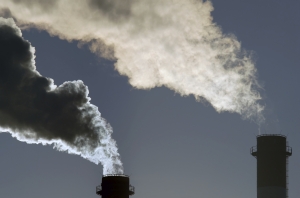MELBOURNE, November 8, 2016 – Analysis by energy and carbon advisory firm, RepuTex, indicates that the average price of carbon contracts under the Emissions Reduction Fund (ERF) is likely to rise at the fourth auction, to be held next week, driven by low competition as the end of the road draws closer for government’s $2.55 billion scheme.
According to RepuTex, 290 projects are eligible to participate in the fourth ERF auction – with just 25 new projects registered since the third ERF auction in April – a 65 per cent fall in auction registration rates, with 77 new projects registered prior to auction three.
Of the new registrations, 14 belong to land-use and waste sectors, with 11 attributed to high emitting industries undertaking Energy Efficiency, Fugitive, and Transport emissions reduction activities. Former Carbon Farming Initiative activities in the Land-use and Waste sectors continue to dominate the ERF, accounting for over 83 per cent of all projects.
According to RepuTex, while a large number of projects are registered, the low number of new registrations indicates that many companies are losing interest in the scheme.
“The low number of registrations reflects market sentiment,” said Mr Grossman.
“Administrative complexity and the diminishing budget have dampened interest in the ERF. This is unlikely to change until the government clarifies whether it will remain the primary buyer of carbon credits, or whether industry will be required to play a role,” he said.
The fourth ERF auction will be held on the 16th and 17th of November, with $816 million or 32 per cent, of the government’s initial $2.55bn funding commitment remaining. The third ERF auction, held in April, contracted 50 million Australian Carbon Credit Units (ACCUs) for $516 million, at an average price of $10.23.
RepuTex notes that auction four is likely to be the last fully funded ERF auction, with potential for a smaller event in 2017 before the government’s $2.55 billion funding commitment is fully committed.
“We continue to assume that the fourth ERF auction will be the last ‘full-scale’ auction to be held without any budget constraint impacting the auction. We anticipate a smaller run-off event in early 2017 which will bring the first tranche of funding to a close,” RepuTex noted in its research note.
According to RepuTex, low turnout at the fourth auction may work to the benefit of companies that do participate, with reduced participation and lower competition likely to lead to higher contract prices according to the market analysts.
“We anticipate that the average contract price will push higher at the fourth auction driven by lower participation,” said Mr Grossman.
“Even though the average price fell to $10.23 at the third ERF auction, we estimate that the highest contract price was around $14. This trend is likely to continue at the fourth auction”.
“We project the average price will increase on low competition, with informed bidders again contracting well above the average price disclosed by the Regulator,” said Mr Grossman.
CLIMATE POLICY GAP “LIKELY” IN AUSTRALIA
With no further funding for the ERF allocated at the 2016 Federal Budget, RepuTex notes that a ‘policy gap’ is likely to develop in Australia over 2017-18, with potential for a 12 month period over which there will be little-to-no federal policy in place to cut emissions.
“We are unlikely to see new funding for the ERF committed until the conclusion of the government’s policy review in November 2017, if it all, with a funding allocation possible at the May 2018 Federal Budget in 18 months.”
“This implies an extended policy gap is likely in Australia, over which period there will be no federal mechanism operating to cut emissions,” said Mr Grossman.
In its latest outlook, RepuTex projected that national emissions would reach 2 per cent below 2005 levels by 2030 under ‘current policy’, compared to Australia’s pledge of 26 per cent below 2005 levels. In cumulative terms, this will create an abatement task of almost 1 billion tonnes of CO2-e between 2020 and 2030 for Australia to meet its emissions target.
This is despite new state policy – including renewable energy targets in the ACT, Queensland, South Australia and Victoria – which suggests that current state policy may be just the tip of the iceberg for what is needed for Australia to meet its 2030 target.
“The roll out of state policy will have a major impact in curbing national emissions, however, even with ambitious state action we anticipate a large shortfall to meet the 2030 target” said Mr Grossman.
“State and federal policy will need to align emissions with Australia’s 2030 target. That could come in the form of declining emission baselines under the safeguard mechanism or a state based trading scheme, whichever comes first” said Mr Grossman.
“How policy levers interact, how they are coordinated at the national level, and how much they cost, remain key questions for business and policymakers,” he said.
RepuTex is Australia’s largest provider energy and emissions market analysis, with customers at over 150 power, energy, metals, mining, land-use, waste, financials and government agencies.













